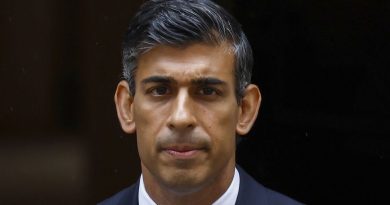Justice subpoena’s are bad enough, but government has other ways to go after journalists
When President Biden’s Justice Department said it would no longer seize journalists’ records to try to uncover their sources, I had extra reason to cheer. More than three decades ago, as a Washington Post reporter who dedicated my life to the practice and values of American journalism, I suffered deliberate governmental revenge for my reporting from Moscow. My cautionary tale demonstrated how, even in the United States, journalists can be punished for doing their jobs — and why U.S. press freedoms need defending.
Journalists are unprotected
The Biden Justice Department decision followed revelations that the Trump administration had sought email logs from four New York Times reporters and records from journalists at CNN, The Washington Post, and other news organizations. Attacks on journalists know no party lines: the investigation continued under Biden, and the Obama administration also aggressively sought reporters’ records to uncover leakers.
Upholding U.S. press freedoms is vital to prevent a slippery slope toward the kind of atrocities against journalists committed by the likes of Saudi Arabia, Belarus, Russia and other autocracies. Today, that slippery slope is already evident. Journalists are increasingly under verbal and physical attack, to the point of being openly called “enemies of the people” by former President Trump. U.S. Press Freedom Tracker counted press freedom violations across 36 US states and more than 80 cities in the past year to 25 May 2021, with an average of 1.6 assaults per day on journalists, mostly by law enforcement.
Press Protections: Justice Department says it will no longer seize journalists’ records
America’s founders believed that a free press is central to holding governments accountable. Thomas Jefferson famously said that “were it left to me to decide whether we should have a government without newspapers, or newspapers without government, I should not hesitate a moment to prefer the latter.” That quote helped inspire me to escape from Communist Yugoslavia and dedicate my life to the truth-telling journalism I believed was only possible in the United States. But my aggressive reporting from Moscow won me enemies, in part because it often proved more accurate than U.S. intelligence assessments.
My troubles began on a frigid Moscow night in February, 1984, when, as The Washington Post’s Moscow bureau chief, I uncovered a scoop that embarrassed U.S. intelligence agencies, namely signs that Soviet leader Yuri Andropov had died. The CIA, told of this by The Post editors, scoffed that I must be smoking pot. But I was correct. The Post and other world media ran stories wondering how the multibillion-dollar U.S. spy agencies had missed the signs picked up by a lone reporter.
The first effort at Cold War-style revenge against me came more than two years later, in 1986, when then-CIA Director Bill Casey and then-FBI Director William Webster attempted to force The Washington Post editor Ben Bradlee to remove me from the intelligence beat he had assigned me to. Bradlee refused.
Newsstand in New York City in 2018. (Photo: ANGELA WEISS / AFP / Getty Images)
The next effort, six years later, after I had left The Post, was in the shape of a misleading story cleverly insinuated into Time Magazine by sources later revealed to be linked to U.S. Intelligence, suggesting that I had been coopted by the KGB. Bradlee and The Post editors fought, but failed to prevent the smear. A who’s who of American journalists, who had reported from the communist world, wrote a letter of protest to Time, and I sued Time in court. Eventually, I won damages and an apology, and exposed the details and sources of the smear.
But the personal cost was incalculable. “You sure got some ‘friends’ at Langley, pal,” was how Bradlee put it to me at the time, referencing the location of CIA headquarters.
I am thankful to be living in peaceful retirement. I can be thankful that I was not murdered in Saudi Arabia’s consulate in Turkey, as was journalist Jamal Khashoggi. I can be thankful that I was not imprisoned –– and possibly tortured –– after being removed from a commercial airliner forced down by government fighter jets, as happened to Belorussian reporter Roman Protasevich recently. I can also be thankful that I was not simply killed like 50 journalists worldwide in 2020, according to Reporters Without Borders.
Journalists killed internationally
Largely because of U.S. laws and protections, the attacks on me were covert –– an attempt at reputation assassination rather than real assassination. Nevertheless, the price I paid was steep, including years of lonely litigation to clear my name.
Free the Press: White House slams Belarus on jet diversion, journalist arrest
Presidents and officials throughout U.S. history have resented journalists exposing what they did not want made public. U.S. press freedoms that helped hold them accountable are now eroding. The Justice Department decision is to be applauded, as are Biden’s words –– with which Thomas Jefferson would have agreed –– that the seizing of reporters’ communications was “simply, simply wrong.”
Dusko Doder, a former Washington Post correspondent, is author, with Louise Branson, of the forthcoming memoir “The Inconvenient Journalist.” Branson is a former USA TODAY editorial writer.
You can read diverse opinions from our Board of Contributors and other writers on the Opinion front page, on Twitter @usatodayopinion and in our daily Opinion newsletter. To respond to a column, submit a comment to [email protected].
Source: Read Full Article


